Covers, photographs, correspondence from contributors, and other ephemera from the archive of Steve Luttrell, the founding editor of the Café Review, a twenty-year-old literary journal in Portland, Maine.

Editor Steve Luttrell interviewing Charles Henri Ford at his home in the Dakota, a famous apartment building in New York City, for the Summer 1996 issue of the Café Review.
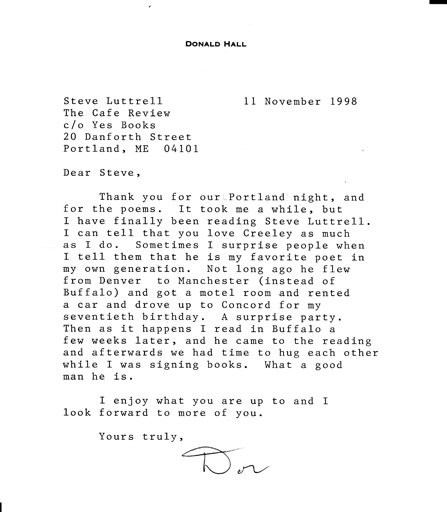
In this letter, dated November 11, 1998, Café Review contributor Donald Hall wrote, "It took me a while, but I have finally been reading Steve Luttrell. I can tell that you love Creeley as much as I do." Luttrell, who is also a published poet, had interviewed Hall the previous summer. Lutrell recalls: "Don once told me that he never refers to himself as a poet. He said, 'I let others call me that if they wish to, because that's a term of high honor.'"
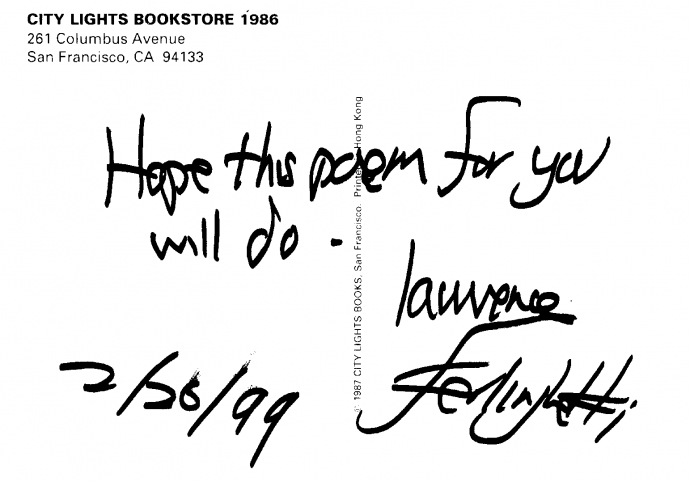
The Café Review has been a haven for Beat luminaries such as Gregory Corso, Diane di Prima, Gary Snyder, Philip Whalen, and Lawrence Ferlinghetti, whose 1999 postcard to Luttrell is shown here.
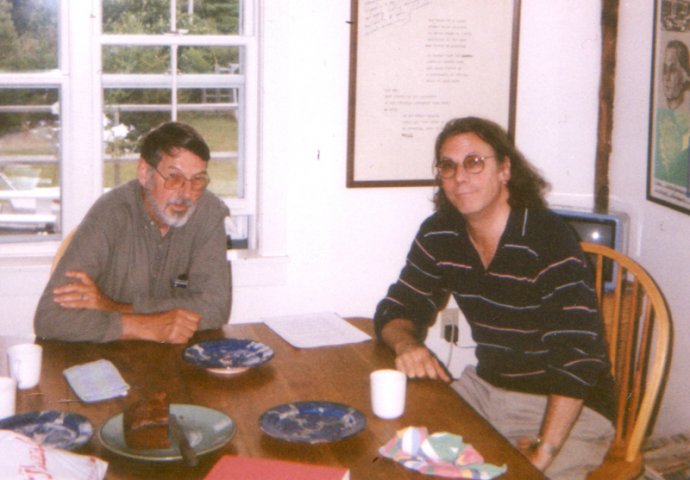
Editor Steve Luttrell interviewing the late Robert Creeley, a frequent contributor, at the poet's Maine summer cottage for the Spring 1995 issue of the Café Review.
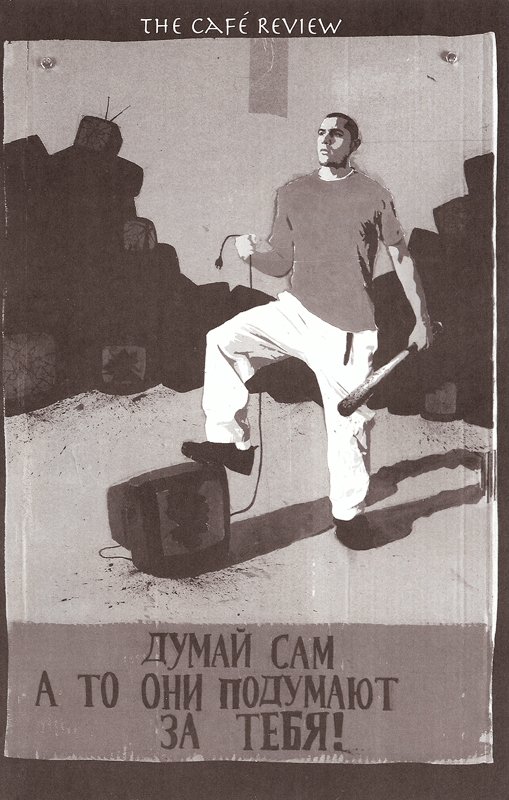
An avid admirer of the Beats, Luttrell has made many pilgrimages to readings and conferences devoted to the subject. “When I was at Naropa one year, and Ginsberg was still alive,” he says with a smile, “I asked him, ‘Allen, if Jack [Kerouac] had lived and you had died, do you think anybody today would remember the Beat Generation?’ I asked him because we all knew how good of a marketer Ginsberg was. But he just smiled when I asked him.”
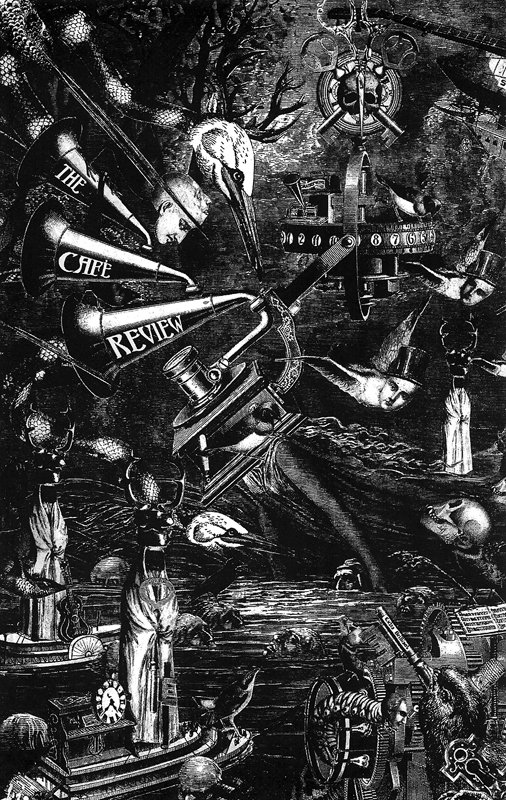
Once, at Naropa, Luttrell overheard an exchange with one of Ginsberg’s and Kerouac’s old cronies, the poet Gregory Corso. While the famously iconoclastic Corso was chatting with a small circle of friends, a man approached him and said: “Hey, good to meet you, Gregory. I’m a poet too.” Corso shot back: “Oh yeah? You’re a poet? Well, you’re an asshole, too!”
“There was nothing Corso hated more than talking with poets about poetry,” says Luttrell, laughing.
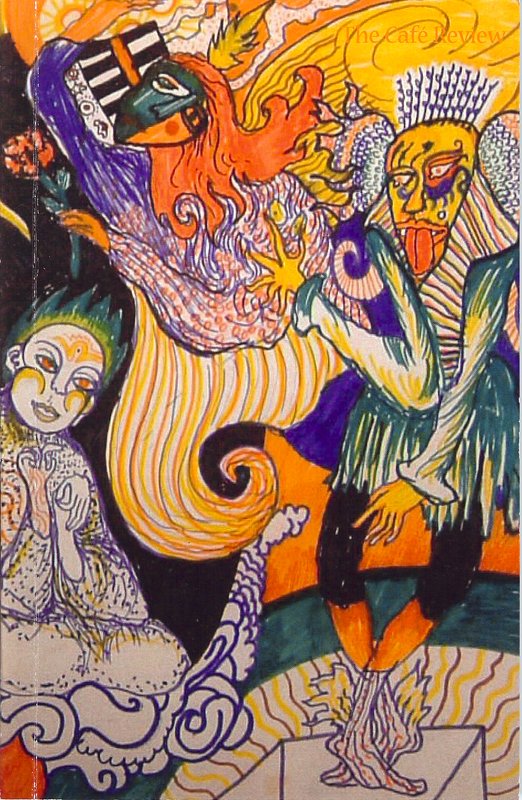
Literary lion George Plimpton once showed his admiration for the Café Review by giving them a free ad on the inside back cover of his influential Paris Review. The ad brought the little Maine poetry journal more attention than Luttrell ever imagined, and even a few subscriptions. But most of the phone calls and letters, Luttrell admits, came from distributors looking to carry the Café Review. “I’d sought distribution from Ingram at one point,” says Luttrell, “but just as everyone who called me up soon realized, our press run is just too small for them to touch—wait, we’re not even small,” he quips, “we’re micro!”
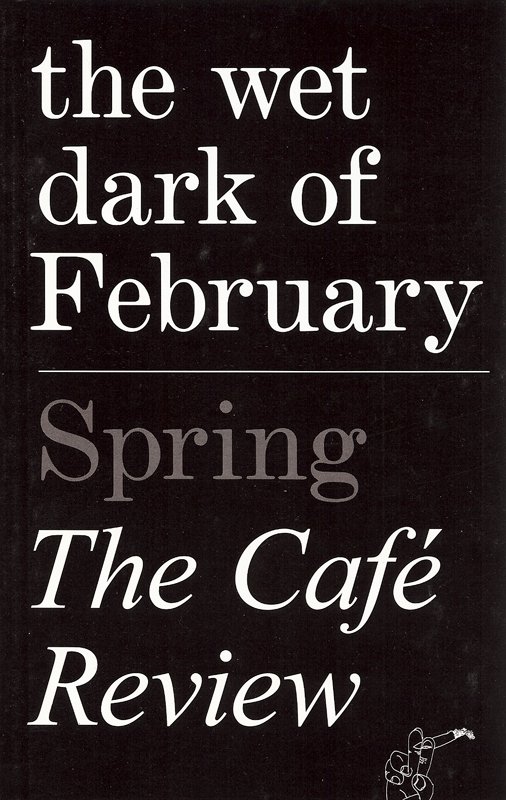
Luttrell often evokes William Carlos Williams’s explanation of a poem (“A poem is a machine made out of words”) as an analogy to the Café Review.
“That’s how I feel about the Café Review, it’s this perfect little machine,” says Luttrell. “Ideas are abundant,” he says of journals that are created by groups of several people and sputter out, “but it takes something else to see those ideas through.”
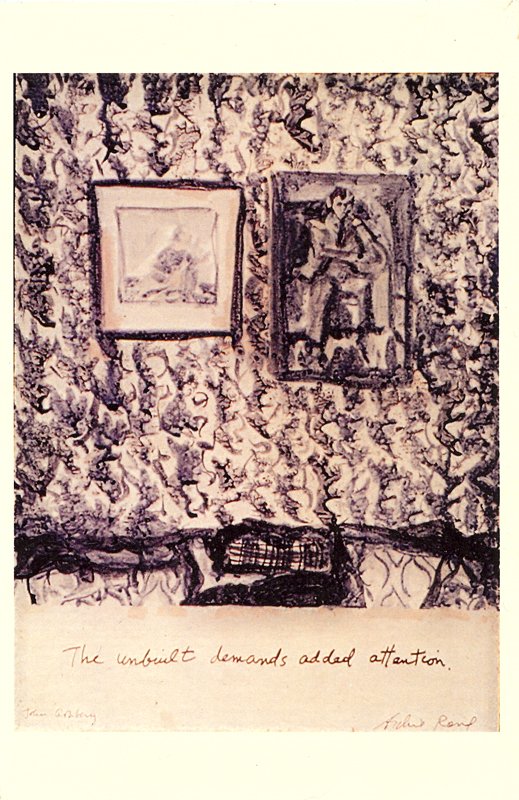
Luttrell says he wants the magazine he helped found to outlast him. True support of small presses, he says, has to come in several ways: “If you care enough about a magazine to submit your work there, you should care enough to send a subscription check and know that the magazine will still be there when they get around to publishing your work.”
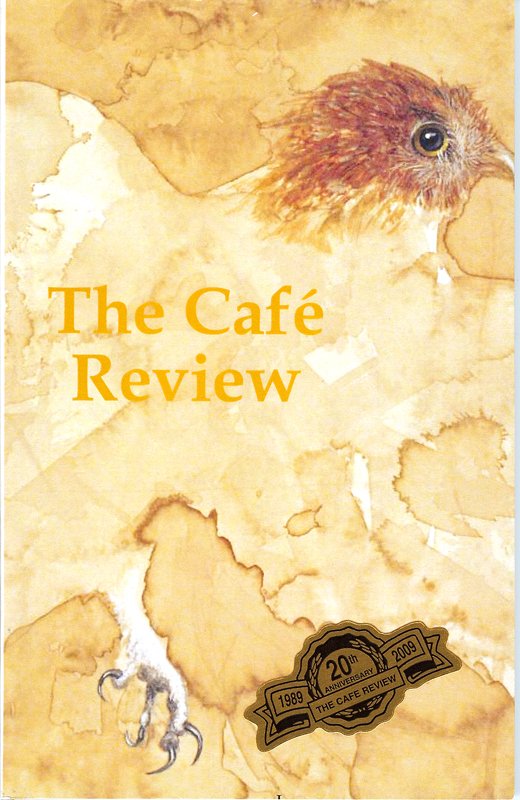
To celebrate both National Poetry Month and the journal's twentieth anniversary, the Editors' Issue of the Café Review was published in April. The volume is unusual because it includes several essays by, as associate editor Stacey Chase explains, “the editors of at least a dozen well-respected poetry journals from across the country.” The editors were asked to describe the state of American poetry today (Is it still useful? Does it still have the power to move a person or change the course of public affairs?) and then explaining how they select poems for their publications. A geographically diverse group contributed to the project, including the editors of journals such as Hunger Mountain (Vermont), Lilliput Review (Pennsylvania), Rattle (California), and the Spoon River Poetry Review (Illinois).







